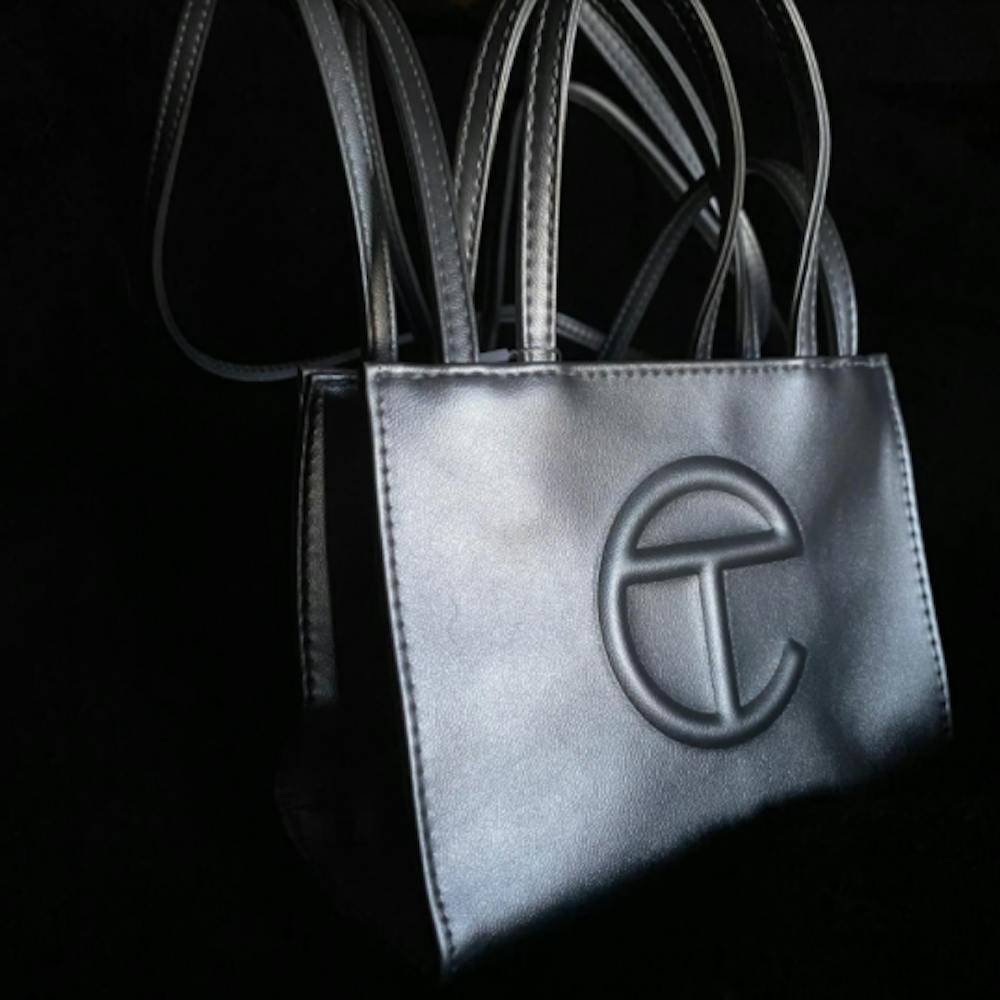By Dana Corvil
Correspondent
In the midst of Covid-19 struggles and civil rights injustices, there has been a push from the black community to put money back into black businesses and black creatives. In fact, reputable business magazines such as Forbes have published lists of black-owned businesses to shop with in 2021. One man — Telfar Clemens — was able to create a large following during the surge of support for black businesses and those who run them. Clemens and his namesake global brand have received a lot of recognition in recent years. It seems that Telfar Global is not going anywhere anytime soon.
“Being a black creative comes with a lot of fans, those who build and those who take away,” said Dana Tocel, a junior human resources business major. “It’s a hard task to upkeep, but when you’re the blueprint, there’s always going to be people there to take notes and follow you.”
Clemens said that it was brought to his attention via email that the American clothing brand, Guess, had been producing and selling an almost identical copy of his Telfar Shopping Bags.

The Guess website marketed a leather tote bag with the letter “G” embossed on either side, just like the embossed “T” featured on Telfar’s leather bags. Despite being aware of the situation since February, Clemens and his partner Babak Radboy decided to let it be, as they did not see the bag as a threat, according to Forbes.
“My guy said ‘they got nothing on us,’ I love the confidence,” Bianca Cherubin, a junior psychology major, said. “He created a product and he had confidence in it, which goes to show the quality of the product as well as the loyalty his customers have.”
The controversy over the copycat bag did not begin making headlines until March, when Twitter user @MikeishaDache created a thread outlining the issues with Guess’ G-logo bag. Dache supported the outrage by noting that although embossed bags are not synonymous with the Telfar brand, this specific design was intended and distributed as a more affordable copy.
“Black people have literally created so much that has been stolen from us. [Guess] saw that the Telfar bags were doing extremely well and thought that if he made a cheaper version he could steer consumers to buy his bag,” Eric Marsh, a junior criminology major, said.
Guess was first called out on social media on Mar. 27 for the sale of the lookalike bag, and according to the New York Times, the brand pulled the item from its website the following day. Signal brands, the handbag licensee for Guess, issued a statement claiming that they made the “independent decision” to halt the sale of the bags.
“Some people deserve to reap what they sow,” said Cherubin. “You can’t do something and expect to not reap the consequences.”
After its inclusion in Oprah’s 2020 Favorite Things list, Telfar became something of a household name in the black community. According to The Cut, social media content creators have coined the name “Bushwick Birkin” for the luxury New York made bag that has become a staple in Brooklyn fashion.
Telfar Global ran a “bag security program” through its website on March 29, a day after Guess pulled their version of the bag and released an apologetic statement. The program allowed consumers to pre-purchase a Shopping Bag of their choice, to be made to order and delivered by the beginning of fall. Anyone who wanted to make a Telfar purchase had full access to the brand’s handbag inventory for 24 hours.
In creating his brand in 2005, Clemens, a Queer Liberian-American man, wanted to develop something that was inclusive, entirely unisex and inherently genderless. The Shopping Bags come in three sizes and multiple colors, but are only available on specific release days or occasionally through the bag security program.
“To all my black creatives, keep creating! We all see your hard work and it is unable to be replicated. Support other creatives and let’s see the community grow,” said Cherubin.







